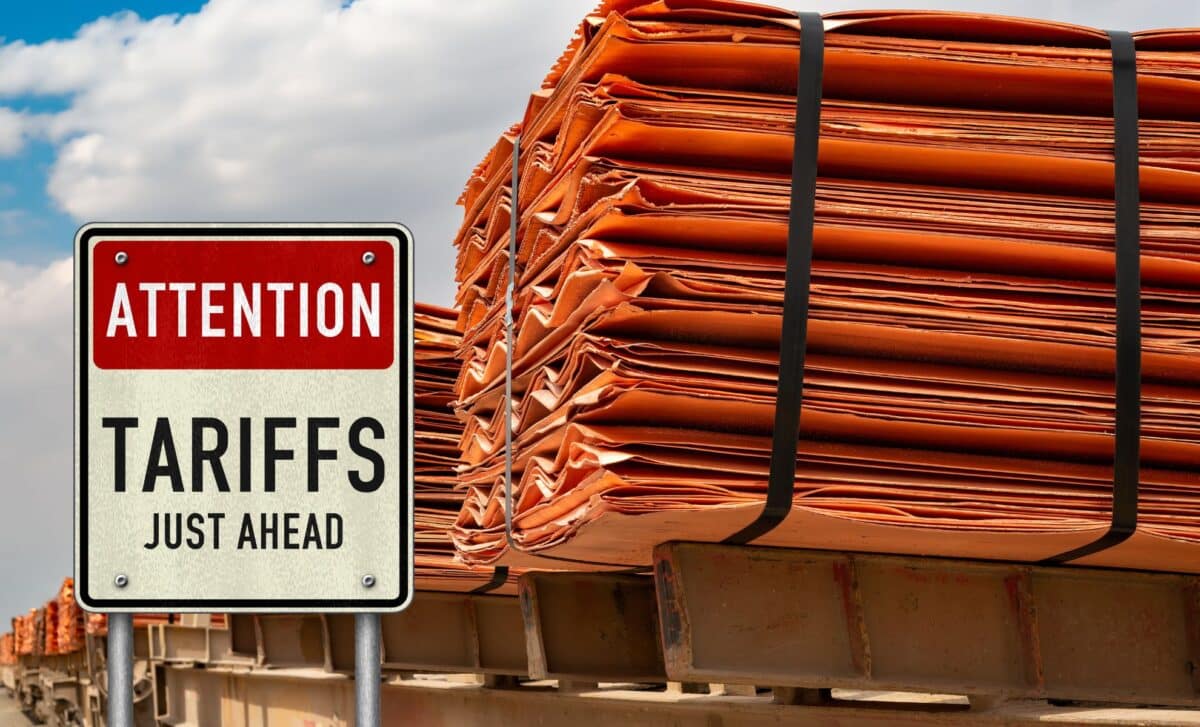The United States has launched an investigation into copper imports, aiming to assess potential national security risks and strengthen domestic production.
Facing growing reliance on foreign metals, the government is seeking to safeguard critical resources as global market shifts and external influences threaten economic sovereignty.
This article appeared on Reuters, reporting on Trump’s effort to reduce dependence on imported copper, a key material for electric vehicles, military hardware, and infrastructure.
While the probe is framed as an urgent response to economic vulnerabilities, it raises concerns over potential impacts on major suppliers, and the future of US trade policy.
Investigation Launched Under Section 232
The tariff probe is being conducted under Section 232 of the Trade Expansion Act of 1962, the same legislation Trump previously used to impose sweeping tariffs on steel and aluminium.
The Commerce Department, led by Secretary Howard Lutnick, will evaluate the risks posed by foreign copper imports and consider potential restrictions.
While no specific tariff rate has been set, a White House official stated that Trump strongly prefers tariffs over quotas, signalling that significant trade measures may be on the horizon.
The investigation will assess the impact of imported raw mined copper, concentrates, alloys, scrap, and derivative products on US industrial capacity and security.
The White House argues that the influx of foreign copper has weakened American producers, echoing concerns previously raised about steel and aluminium markets.
Trump’s advisors believe that China is actively working to dominate the global copper industry, using state subsidies and overproduction to control supply chains.
The Biggest Suppliers at Risk
The US relies heavily on imported copper, with several key trading partners playing a dominant role. The largest supplier by far is Chile, followed by Canada and Mexico.
Other significant exporters include Peru, Germany, South Korea, and China, though their shares of the market are notably smaller.
In 2024, US copper imports accounted for 45% of national consumption, marking a sharp increase compared to previous decades.
Chile alone exported over $6 billion worth of copper to the US, while Canada contributed approximately $4 billion. With a potential tariff regime on the horizon, these countries could face serious economic consequences.
Despite the focus on China’s role in global copper production, the immediate impact of tariffs would likely fall hardest on Latin American and North American suppliers, raising tensions with US allies.
Canada and Mexico are already facing 25% tariffs on other goods, and additional levies on copper could further strain trade relations.
Market Reaction and Economic Implications
The announcement has already triggered reactions across financial markets. Shares of Freeport-McMoran, the largest US-based copper producer, surged by 5% in after-hours trading, reflecting investor confidence in potential government support for domestic production.
However, the broader economic outlook appears less stable. The Conference Board reported the largest drop in consumer confidence in three-and-a-half years, as uncertainty over inflation and trade policies continues to weigh on households.
Meanwhile, Wall Street saw a fourth consecutive day of declines, with investors expressing concerns.
Industry analysts warn that tariffs could increase manufacturing costs, particularly for sectors relying on copper for electrical infrastructure, transportation, and defence applications. On the other hand, proponents argue that reshoring copper production is necessary to secure long-term industrial stability.
The Strategic Importance of Copper
Copper is a cornerstone material for modern technology and national security. The Department of Energy has identified it as a critical resource, citing growing demand in renewable energy, AI-driven computing, and weapons development.
Commerce Secretary Lutnick framed the issue as a matter of economic independence.
“Like our steel and aluminum industries, our great American copper industry has been decimated by global actors attacking our domestic production,” he explained.
He insisted that US industries must no longer depend on foreign suppliers.
“American industries depend on copper, and it should be made in America, no exemptions, no exceptions,” he stated. “It’s time for copper to come home.”
The copper investigation is part of a wider shake-up in Trump’s trade strategy, targeting both rival economies like China and longstanding allies. The administration has also revived tariff probes into digital services taxes on US tech giants, escalating disputes with European governments over levies on Google, Apple, and Amazon.









